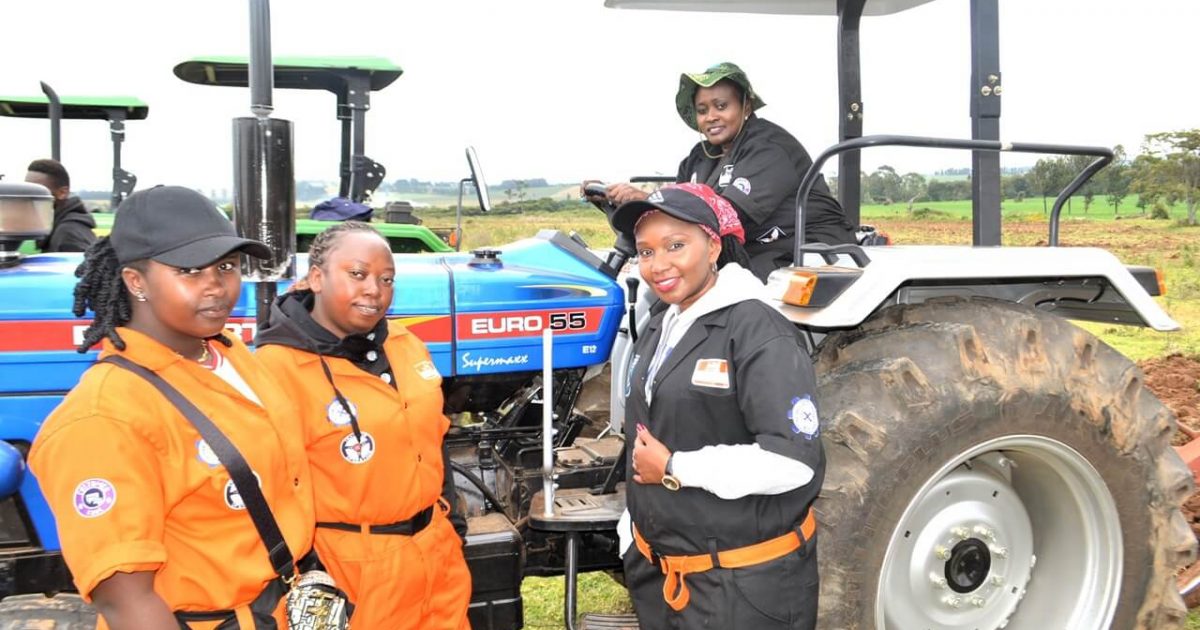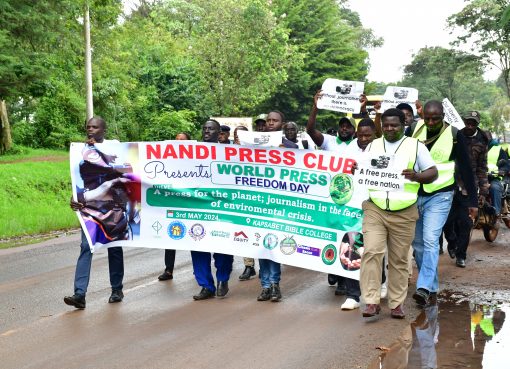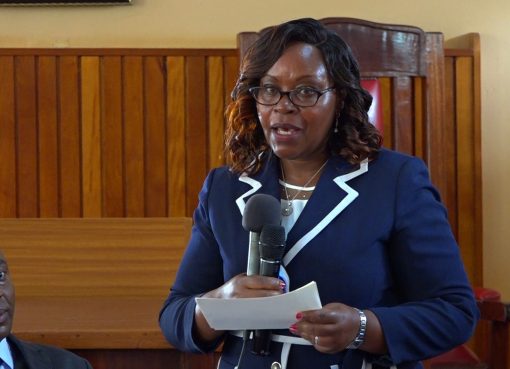Egerton University is equipping women farmers from nine Counties with practical mechanized farming skills in a bid to improve food production and enhance food security in the country.
The institution announced that it was crafting public-private partnerships to encourage setting up of mechanization hubs, which will also link providers of mechanized farm services with women small-holder farmers who do not have agricultural machinery.
The university Deputy Vice Chancellor in charge of Academics, Research and Extension Prof. Bernard Aduda said they have kicked of training for more than 200 women on mechanized farming from the counties of Kisumu, Bomet, Nakuru, Kericho, Kisii, Nyamira, Laikipia, Uasin Gishu, and Elgeyo Marakwet to help them gain essential skills on secure food supply and help them enhance their support to overcome existing barriers on improved food systems.
Prof. Aduda explained that the move was aimed at giving women farmers opportunities to embrace better mechanized food production strategies to increase yields in addition to making farming attractive to the younger generation.
He said the institution’s desire was to realize a situation where small-holder female farmers will have access to subsidized mechanization that will help reduce over reliance on human labor which he said was not economical adding that they were supporting the Government of Kenya’s Bottom-Up Economic Transformation Agenda (BETA), by launching the seventh cohort of its Agricultural Tractor Operator Training program which is focused on empowering women through mechanized farming.
“This initiative aligns with BETA’s commitment to increasing agricultural productivity and expanding economic opportunities for grassroots communities”, added Prof. Aduda.
He argued that by empowering women in small-scale farming with access to mechanized farming techniques, Egerton University was working to bolster Kenya’s food security and stimulate rural economies through practical skill development.
The Deputy VC said the training program was being supported by Hello Tractors, One Acre Fund, Kenya Investment Mechanism (KIM), John Deere, CFAO Kenya, Kubota, Massey Ferguson, Heifer International Kenya, CIWaB, and Egerton University’s Faculty of Engineering and Technology.
While noting that there was need to boost crop yields to feed Kenyans as a priority, Prof. Aduda said technological advancements had enabled manufacture of light and cheaper machines that could help women small holder farmers revolutionize agriculture both in terms of quantity and quality of products being grown and processed.
“The University is seeking ways of enhancing food security through mechanized farming, irrigation, and use of quality seeds and appropriate fertilizers,” he further said.
The Deputy VC noted that mechanized farming contributed to timely preparation of land, efficient land use and increased production in addition to reducing the cost of production and creating more employment opportunities particularly among the youth and women.
Prof. Aduda emphasized the need for traders and dealers in agricultural machinery to equip small holder farmers with technical know-how to operate and maintain the machinery through field days, workshops, farm visits and seminars to enable them become commercially viable.
The Varsity Don stated that they were encouraging dealers and manufacturers of farm machinery to ensure that their products targeting small scale farmers were built with simplicity of design, unsurpassed reliability, outstanding fuel economy and minimal maintenance requirements.
He also advised that Asset financing should be tailor-made to suit the abilities of both small holders and large-scale farmers, saying some new farmers lack experience with planters, tractors and implements. He told dealers to put in place training as part of the package for new owners by showing buyers how to maximize the use of their machinery to boost their food production.
Dean of the Faculty of Engineering and Technology, Prof. Japheth Onyando, observed that mechanized farming improves harvesting of the crop, lowering costs, and reducing post-harvest losses by 20 percent with fewer damaged crops compared to manual harvest.
Prof. Onyando indicated that the training was a step towards gender inclusion in the field of mechanized agriculture and a forum for allowing women to play an active role in mechanizing Kenya’s agricultural sector.
The training program’s curriculum blends practical and theoretical knowledge, covering areas such as tractor maintenance, handling, field operations, and advanced farming techniques.
According to the World Bank report on Agribusiness Indicators the degree of mechanization in Kenya is about three tractors per 1,000 hectares or 26.9 tractors per 100 square kilometers.
The report indicates that despite the potential that mechanization has in transforming agriculture by helping farmers to intensify their businesses, mechanization levels remain very low in Kenya and across the African continent.
Kenya’s low level of mechanization is attributed to inadequate training, research and technology development, weak local manufacturing and distribution, insufficient agricultural mechanization quality assurance, low level of investments in mechanization services, poor extension and technology adoption as well as weak institutional and legal framework.
In 2019, Africa Renewal reported that Africa had an average of about one to two tractors per every square kilometer compared to developed countries, where India had 128 tractors while Brazil registered 116 tractors both per square kilometer.
The World Bank attributed the low level to the fact that mechanization is capital intensive, requiring special financial products such as long-term capital, credits, or leasing arrangements, which is beyond small holder farmers and Micro, Small and Medium Enterprises (MSMEs).
According to the Food and Agriculture Organization (FAO), a UN specialized agency that champions efforts to defeat hunger, Africa overall has less than two tractors per 1,000 hectares of cropland. There are 10 tractors per 1,000 hectares in South Asia and Latin America.
By Esther Mwangi





